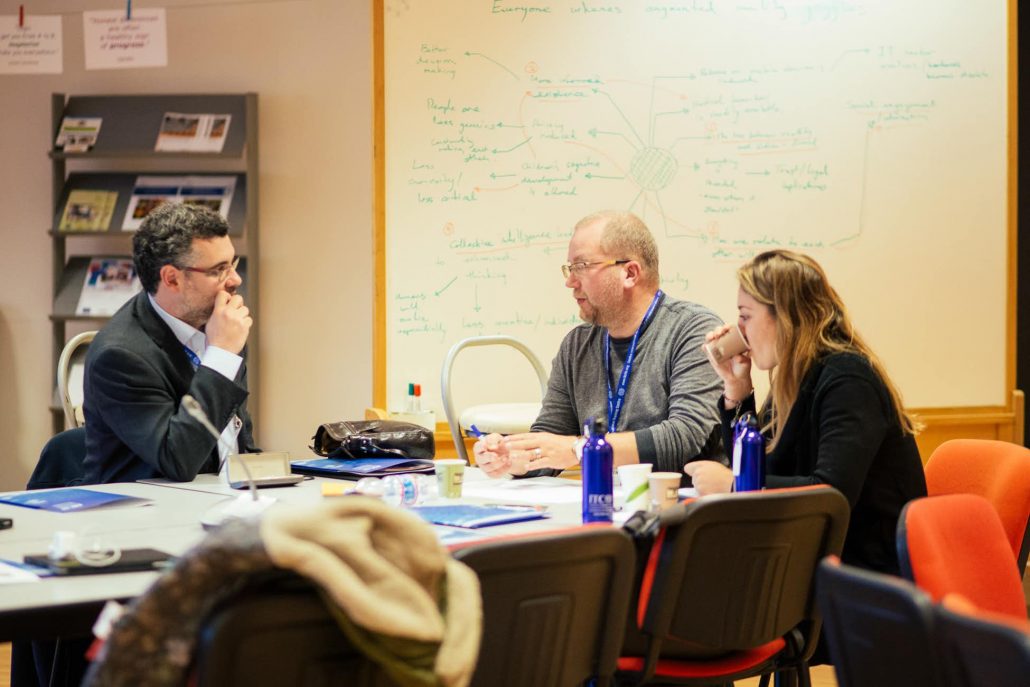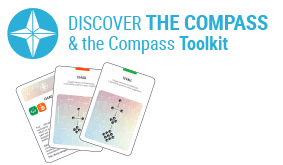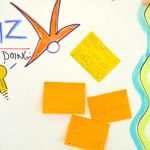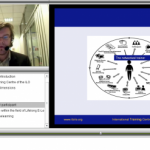Troika Consulting

Get practical and imaginative help from colleagues immediately
Overview
Peer to peer coaching helps with discovering everyday solutions, revealing patterns, and refining prototypes. This is a simple and effective way to extend coaching support for individuals beyond formal reporting relationships.
How to use it
- Refine skills in asking for help.
- Learn to formulate problems and challenges clearly.
- Refine consulting and listening skills.
- Generate wisdom that helps you work across disciplines and functional silos.
- Actively build trust through mutual support.
- Create conditions for unimagined solutions to emerge.
- Begin and end staff meetings.
- Give participants time to formulate and sift next steps after a presentation.
- At conferences and large group meetings.
How to apply it
Start:
Participants are asked, “What is your challenge? What kind of help do you need?
Setting:
Groups of three, seated, knee-to-knee is preferred.People with diverse backgrounds and perspectives are most helpful. Everyone has an equal opportunity to contribute.
Materials:
- Meld with 15% Solutions: each client shares their 15% Solutions, asking for coaching.
- Invite the client to face away from their consultants once the question has been shared and clarified (this deepens curiosity, listening, empathy and risk-taking for all).
- Generate only questions to clarify the challenge: no advice giving (aka Q-Storming).
- Link to Helping Heuristics, Heard Seen Respected (HSR), Five Whys.
Time/Steps:
- 1 minute: Participants reflect on a consulting question they plan to ask (when they are the client).
- 1-2 minutes: One participant (the ‘client’) shares their question with the others, who are ‘consultants’.
- 1-2 minutes: Consultants ask the client clarifying questions.
- 4-5 minutes: Together, the consultants generate ideas, suggestions, coaching advice.
- 1-2 minutes: The client shares what was most valuable about the experience.
- Switch to next person and repeat.
Tips
- Invite mixing of roles within each Troika.
- Try to notice the pattern of support offered. The autopilot is to lovingly provoke by telling the client “what you see that they do not see”.
- If the first round is weak, try again.
- Questions that spark self-understanding or self-correction may be more powerful than advice about what to do.
- Try to stay focused on self-reflection by asking, “What is happening here? How are you experiencing what is happening?”









